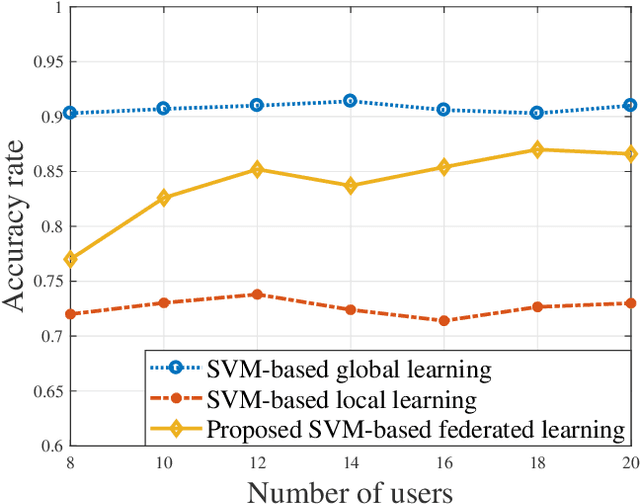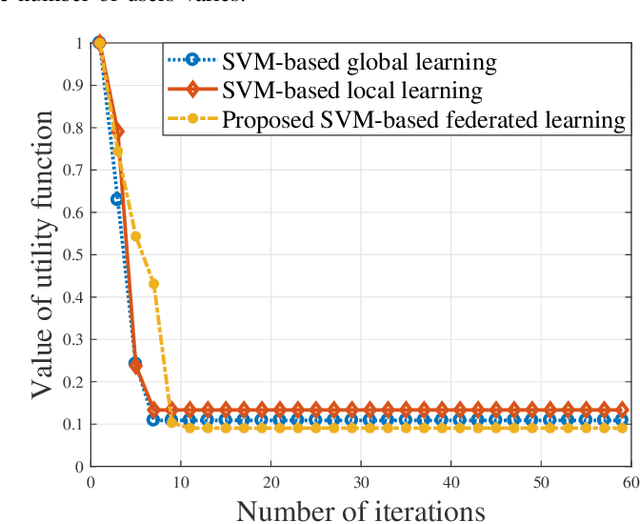Federated Learning for Task and Resource Allocation in Wireless High Altitude Balloon Networks
Paper and Code
Mar 19, 2020



In this paper, the problem of minimizing energy and time consumption for task computation and transmission is studied in a mobile edge computing (MEC)-enabled balloon network. In the considered network, each user needs to process a computational task in each time instant, where high-altitude balloons (HABs), acting as flying wireless base stations, can use their powerful computational abilities to process the tasks offloaded from their associated users. Since the data size of each user's computational task varies over time, the HABs must dynamically adjust the user association, service sequence, and task partition scheme to meet the users' needs. This problem is posed as an optimization problem whose goal is to minimize the energy and time consumption for task computing and transmission by adjusting the user association, service sequence, and task allocation scheme. To solve this problem, a support vector machine (SVM)-based federated learning (FL) algorithm is proposed to determine the user association proactively. The proposed SVM-based FL method enables each HAB to cooperatively build an SVM model that can determine all user associations without any transmissions of either user historical associations or computational tasks to other HABs. Given the prediction of the optimal user association, the service sequence and task allocation of each user can be optimized so as to minimize the weighted sum of the energy and time consumption. Simulations with real data of city cellular traffic from the OMNILab at Shanghai Jiao Tong University show that the proposed algorithm can reduce the weighted sum of the energy and time consumption of all users by up to 16.1% compared to a conventional centralized method.
 Add to Chrome
Add to Chrome Add to Firefox
Add to Firefox Add to Edge
Add to Edge